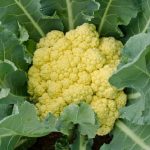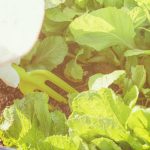Post emergent herbicide for vegetable gardens is an essential tool for effectively managing weeds and ensuring the health and productivity of the garden. These herbicides are specifically designed to target and eliminate weeds that have already emerged, providing a crucial solution for weed control in vegetable gardens. By understanding the importance of post emergent herbicides and choosing the right one, gardeners can ensure their vegetables thrive in a weed-free environment.
In order to maintain a flourishing vegetable garden, it is important to address the issue of weeds, which can compete with plants for nutrients and water, ultimately hindering their growth. Post emergent herbicides offer a targeted and effective approach to dealing with this common problem. By properly applying these herbicides, gardeners can maintain a healthy and thriving vegetable garden.
When selecting a post emergent herbicide for vegetable gardens, there are several factors to consider. It’s crucial to choose an herbicide that not only effectively controls weeds but is also safe for use in vegetable gardens. Additionally, understanding the specific types of weeds that affect vegetable gardens will help in making an informed decision when selecting the most appropriate herbicide for effective weed control.
Common Weeds in Vegetable Gardens
When it comes to maintaining a vegetable garden, dealing with weeds is an inevitable challenge. Weeds are unwanted plants that compete with your vegetables for water, nutrients, and sunlight. They can also harbor pests and diseases that could potentially harm your crops. Some of the most common weeds found in vegetable gardens include crabgrass, dandelions, purslane, chickweed, and pigweed. These weeds not only disrupt the appearance of your garden but also hinder the growth and productivity of your vegetables.
Impact of Weeds on the Garden
Weeds can have a significant impact on the overall health and productivity of your vegetable garden. By competing with your desired plants for essential resources, weeds can stunt the growth of your vegetables and reduce their yield. In severe cases, they can even crowd out your crops altogether.
Additionally, certain weed species may release chemicals that inhibit the growth of neighboring plants or attract harmful insects. Therefore, it is crucial to address weed infestations promptly to ensure that your vegetable garden thrives.
Using Post Emergent Herbicide for Weed Control
In managing weed infestations in vegetable gardens, using a post emergent herbicide can be an effective solution. Unlike pre-emergent herbicides which prevent weed seeds from germinating, post emergent herbicides are designed to target actively growing weeds.
When choosing a post emergent herbicide for vegetable gardens, it is important to consider products that are specifically formulated for use around edible plants. Look for herbicides that are labeled as safe for use in vegetable gardens and follow the application instructions carefully to minimize any potential risks to your crops or the environment.
Benefits of Using Post Emergent Herbicide
Using post emergent herbicide offers several benefits when it comes to effectively managing weeds in a vegetable garden.
Choosing Safe Post Emergent Herbicide
When selecting a post emergent herbicide for use in your vegetable garden, safety should be a top priority.
Choosing the Right Post Emergent Herbicide
When it comes to choosing the right post emergent herbicide for your vegetable garden, there are several factors to consider. Firstly, it is important to identify the specific types of weeds that are affecting your garden. Different herbicides are designed to target different types of weeds, so understanding the specific weed problem in your garden will help you make an informed decision.
Another important factor to consider when choosing a post emergent herbicide is the safety of its use in vegetable gardens. It is crucial to select a herbicide that has been approved for use on edible plants and is safe for the environment. Reading labels and conducting research on the potential effects of the herbicide on vegetables and soil health is essential in making the right choice.
Additionally, it is important to consider the effectiveness and ease of application of the herbicide. Some products may require multiple applications or specific conditions for optimal results. Understanding these requirements will play a role in determining which post emergent herbicide is best suited for your vegetable garden.
Application of Post Emergent Herbicide
Step-by-Step Guide
When it comes to using post emergent herbicide for vegetable gardens, proper application is crucial for effective weed control. First and foremost, it is important to carefully read and follow the instructions provided on the herbicide label. This includes information regarding application rates, timing, and safety precautions. It is also essential to choose a calm, dry day for application to avoid drift and ensure maximum effectiveness.
Best Practices
To achieve the best results when applying post emergent herbicide in vegetable gardens, it is recommended to spot treat specific areas with weeds rather than applying the product across the entire garden. This targeted approach minimizes the use of chemicals and reduces the potential impact on desirable plants. Additionally, it is advisable to apply the herbicide when weeds are actively growing and not under stress from drought or other adverse conditions.
Safety Measures
When using any type of herbicide in vegetable gardens or any garden space, safety should be a top priority. It is important to wear appropriate protective gear such as gloves, goggles, long sleeves, and pants during application. Additionally, keep children and pets away from the area during and after application until the product has dried completely. Proper storage of herbicides away from food supplies and animal feed is also essential for preventing accidental ingestion or contamination.
Remember that proper timing of post emergent herbicide application can greatly affect its effectiveness while ensuring minimal impact on your vegetable garden. By following best practices and safety measures during application, you can effectively manage weeds without compromising the health of your valuable vegetables.
Safety Precautions for Using Herbicides in Vegetable Gardens
When using post emergent herbicide for vegetable gardens, it is essential to prioritize safety precautions to avoid any potential risks to both the plants and the gardeners themselves. Here are some key safety measures to keep in mind when using herbicides in vegetable gardens:
- Read the label: Before using any post emergent herbicide, carefully read and follow the instructions on the product label. Pay attention to any specific safety precautions, application rates, and re-entry intervals.
- Personal protective equipment (PPE): When applying herbicides, always wear appropriate PPE such as gloves, long-sleeved shirts, long pants, closed-toe shoes, and eye protection to minimize exposure to the chemicals.
- Weather conditions: Avoid applying herbicides during windy conditions or when rain is expected within 24 hours. Wind can cause herbicide drift onto desirable plants, while rain can wash away the product before it has a chance to work effectively.
In addition to these safety precautions, it is crucial to be mindful of any potential risks associated with using post emergent herbicide for vegetable gardens. Some commonly known risks include chemical runoff that may contaminate water sources and harm non-target plants and organisms. To mitigate these risks, consider using alternative methods for weed control or choose herbicides labeled as safe for use in vegetable gardens. Always store herbicides properly and securely out of reach of children and pets.
By following these safety precautions and being aware of potential risks, gardeners can effectively manage weeds in their vegetable gardens without compromising their own well-being or that of their surroundings. When used responsibly, post emergent herbicides can be a valuable tool for maintaining a healthy and flourishing vegetable garden.
Alternatives to Post Emergent Herbicide
When it comes to controlling weeds in vegetable gardens, there are alternative methods that can be used instead of post emergent herbicides. One popular option is the use of mulch, which helps prevent weed growth by blocking out sunlight and reducing the chances of weed seeds germinating.
Additionally, hand weeding and hoeing are effective ways to remove weeds without the use of chemicals. These methods may require more manual labor, but they can be just as effective in keeping vegetable gardens free from unwanted plants.
Another alternative to post emergent herbicides is the practice of crop rotation. By rotating crops regularly, different types of plants can be grown in a particular area each season, disrupting the life cycle of weeds and reducing their prevalence over time.
Cover cropping is also a valuable technique that involves planting specific crops for the purpose of suppressing weeds and improving soil health. These non-chemical approaches not only help control weeds but also contribute to the overall well-being of the vegetable garden.
For those who prefer an organic approach, using vinegar or boiling water can be an effective way to kill weeds without the use of synthetic chemicals. Spraying vinegar directly onto weed leaves will cause them to wither and die, while pouring boiling water over weeds can have a similar effect. Although these methods may need to be repeated multiple times for full effectiveness, they offer a natural and environmentally friendly way to address weed issues in vegetable gardens.
Finally, employing good gardening practices such as proper spacing between plants and regular irrigation can also help reduce weed growth in vegetable gardens. Taking preventive measures like using landscape fabric or installing barriers can also go a long way in minimizing the need for post emergent herbicide application.
| Alternative Weed Control Methods | Effectiveness |
|---|---|
| Mulching | Blocks out sunlight and reduces weed germination |
| Crop Rotation | Disrupts weed life cycles and decreases prevalence over time |
| Vinegar/Boiling Water | Natural alternatives for killing weeds without synthetic chemicals |
Tips for Successful Weed Control in Vegetable Gardens
Successful weed control in vegetable gardens is essential for maintaining a healthy and productive garden. Here are some tips and tricks to effectively manage unwanted weeds:
- Regularly hand pull weeds: Take the time to regularly inspect your vegetable garden and hand pull any weeds that you see. This manual method of weed control can be very effective, especially for larger weeds that may not be easily controlled by herbicides.
- Use mulch: Applying a layer of organic mulch such as straw, wood chips, or shredded leaves can help suppress weed growth by limiting the amount of light that reaches the soil. Mulch also helps retain moisture and regulate soil temperature, benefitting your vegetable plants while inhibiting weed growth.
- Proper spacing: When planting your vegetables, be sure to space them out properly. Giving your plants enough room to grow will reduce competition with weeds and make it easier to manually remove them as they appear.
In addition to these tips, it’s important to stay proactive in monitoring and maintaining your vegetable garden to prevent weed infestations. Regular weeding, watering, and proper plant care can all contribute to successful weed control.
Remember that while post emergent herbicides can play an important role in controlling weeds in vegetable gardens, using them in combination with other methods such as hand pulling and mulching can maximize effectiveness while minimizing environmental impact.
When properly managed, your efforts towards successful weed control in your vegetable garden will result in healthier plants and a more bountiful harvest.
Conclusion
In conclusion, it is evident that post emergent herbicide plays a crucial role in maintaining the health and productivity of vegetable gardens. With the ability to effectively target and eliminate common weeds, post emergent herbicides are an essential tool for gardeners looking to achieve successful weed control. By understanding the factors to consider when choosing the right herbicide and following best practices for application, vegetable gardeners can ensure maximum effectiveness while minimizing potential risks.
Furthermore, the importance of safety precautions cannot be overstated when using post emergent herbicides in vegetable gardens. It is imperative to follow guidelines for safe application and take necessary measures to protect both the plants and the environment. Additionally, exploring alternative methods for weed control, such as organic options or non-chemical approaches, provides valuable insight into sustainable gardening practices.
Ultimately, the benefits of using post emergent herbicide for vegetable gardens are clear. By taking proactive steps in weed control and implementing regular maintenance and monitoring, gardeners can create an environment that fosters healthy plant growth and bountiful harvests. With the right approach and proper use of post emergent herbicides, vegetable gardens can thrive while effectively managing unwanted weeds.
Frequently Asked Questions
What Is the Best Herbicide for a Vegetable Garden?
The best herbicide for a vegetable garden depends on the specific types of weeds you’re dealing with. Selective herbicides that target specific types of weeds while leaving vegetables unharmed are often the best choice.
How Do I Kill Weeds in My Garden Without Killing Vegetables?
Killing weeds in your garden without harming the vegetables can be achieved through methods such as hand-pulling, mulching, or using natural herbicides like vinegar or boiling water. It’s important to carefully apply any herbicide to avoid contact with your vegetables.
What Are Post-Emergence Herbicides for Tomatoes?
Post-emergence herbicides for tomatoes are formulated to target weeds that have already sprouted and are growing among the tomato plants. These herbicides should be used with caution to prevent damage to the tomatoes, and it’s important to follow the instructions on the product label carefully.

If you’re looking to get into vegetable gardening, or are just looking for some tips on how to make your current garden better, then you’ve come to the right place! My name is Ethel and I have been gardening for years. In this blog, I’m going to share with you some of my best tips on how to create a successful vegetable garden.





